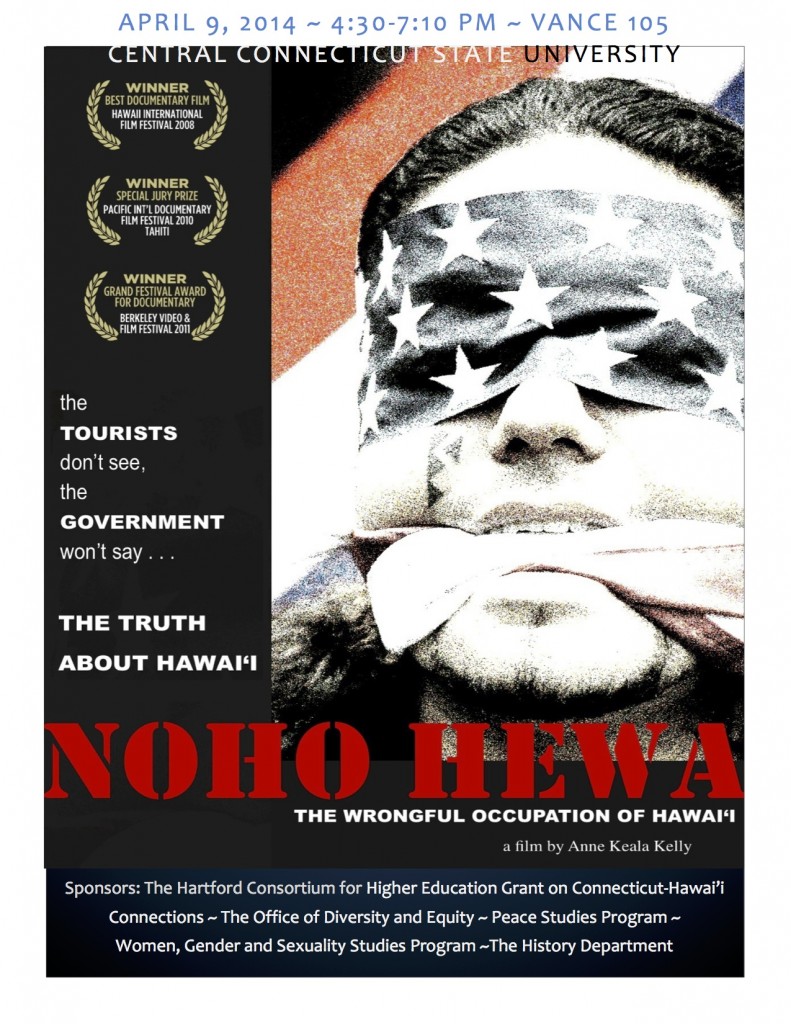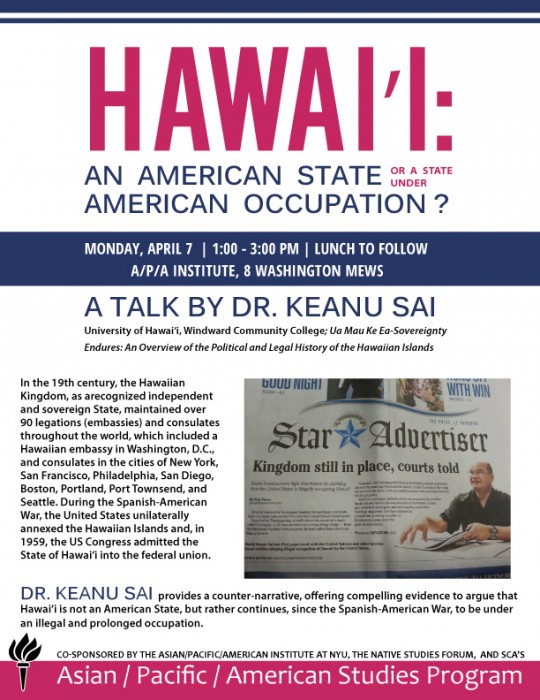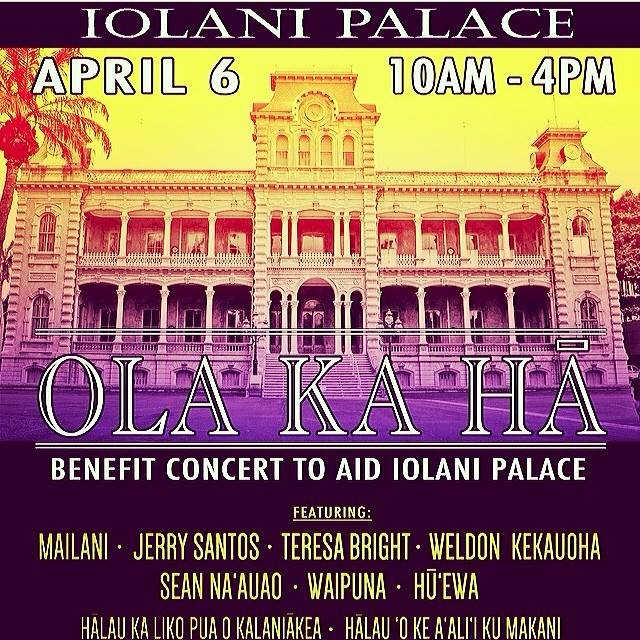Umi Perkins has a good response in the Hawaii Independent to Ian Lind’s piece that was published earlier in Honolulu Civil Beat. I have appreciated Lind’s writings in the past but in this case he really shows his ignorance and Perkins does a good job addressing some of the points.
Lind’s main problem is relying on Hawaii Supreme Court decisions as any kind of valid definition to the limits of Hawaii’s sovereignty. This is inherently self-contradictory and problematic. It is the occupier’s court. It would be like saying that the restoration of the sovereignty of the Baltic States (Lithuania, Latvia and Estonia) should have been limited by only what the Soviet courts would have allowed. Or Kuwait limited by Iraq’s courts. Of course that’s nonsense.
Although I don’t belittle their efforts like Lind does, I do also have issues with anyone who claims to be king (or queen) of Hawaii because the Hawaiian Kingdom constitution itself establishes the process of succession, under Article 22:
In case there is no heir as above provided, then the successor shall be the person whom the Sovereign shall appoint with the consent of the Nobles, and publicly proclaim as such during the King’s life;
(This article is similar in both the 1864 and the 1887 “Bayonet” constitutions, so whichever version one assumes to be the last valid constitution, the process is the same.)
Her Majesty Queen Lili’uokalani died on November 17, 1917, and due to the American invasion and occupation which had made the kingdom government ineffective, she failed to receive confirmation from the Nobles of the Legislative Assembly for her nomination in accordance with this article of the Constitution. The article goes on then to say:
…should there be no such appointment and proclamation, and the Throne should become vacant, then the Cabinet Council, immediately after the occurring of such vacancy, shall cause a meeting of the Legislative Assembly, who shall elect by ballot some native Alii of the Kingdom as Successor to the Throne; and the Successor so elected shall become a new Stirps for a Royal Family; and the succession from the Sovereign thus elected, shall be regulated by the same as the present Royal Family of Hawaii.
This happened twice in Hawaii during the kingdom era, with Lunalilo and Kalakaua, when a successor wasn’t named, and a new king was instead elected by the Legislative Assembly after an interregnum.
But now we are in a situation where due to the prolonged illegal U.S. occupation, the bodies of the government—the Cabinet Council and the Legislative Assembly—are not in place to select a new successor to the throne. Thus there has been a prolonged interregnum. But this is the process that would have to occur, once those bodies are reestablished in some way, for a new monarch to be elected in a manner that would be considered legitimate, under the existing constitution.
There is a healthy debate as to whether the future of Hawaii should involve a monarchy at all, as most people here including most descendants of the Hawaiian kingdom have grown up valuing democratic and republican (small d and r) values, which are much more than just American. Yet there are many constitutional monarchies around the world, and in most cases the monarchy does not have any kind of real substantial power in the laws and administration of the country, but plays an important role in international diplomacy and protocol, and also serves as a symbol and primary patron for the culture of its people. I personally would support the restoration of the Hawaiian monarchy and the selection of a new king or queen, but only if its role was limited in this regard, similar to many of the constitutional monarchies still in existence today.
[Edited to add this later…]
Hawaii was already a constitutional monarchy with three branches of government and an elected legislature, with a defined and limited executive role for the monarch in place prior to the occupation, so it’s certainly not unreasonable to assume that Hawai’i would have continued to evolve like other constitutional monarchies anyway, with the monarch taking on more of a diplomatic, cultural and symbolic role in a modern, democratic government. And I believe that is what we can transition toward in the future that will ensure Hawaii’s heritage and distinct international identity, be embraced by a majority of the population and thus be effective, and be an actual improvement over the occupation government we have now, which is what everyone wants anyway.




